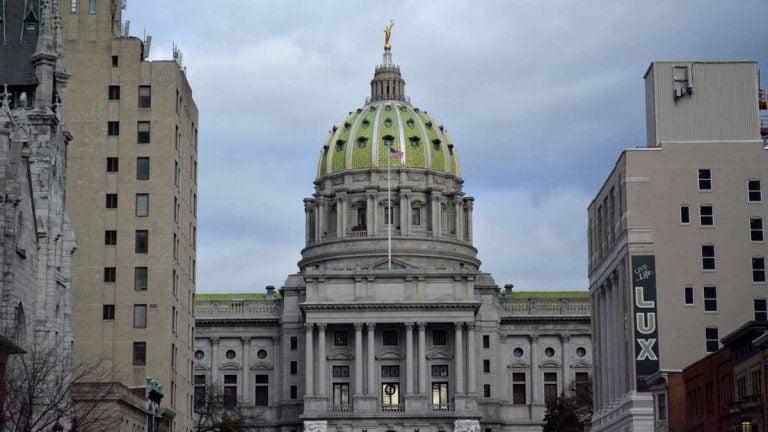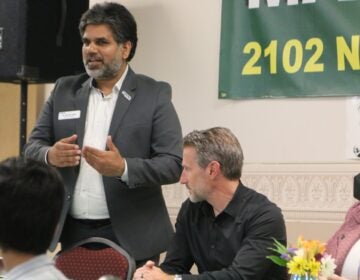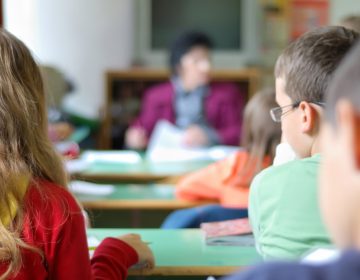Pa. property tax opponents gear up for another fight in the Statehouse

Capitol Building, Harrisburg. (Kevin McCorry/WHYY)
A bipartisan group of state senators is plotting another attempt at legislation that has become something of a white whale in Pennsylvania — overhauling the property tax system.
They’re reviving a bill that failed to pass the chamber by a single vote in 2015.
Pennsylvania’s property taxes largely pay for public schools, as well as local government expenses.
Proceeds from the tax currently total more than $14 billion dollars annually — a number that has increased dramatically over the last decade. To lessen the burden of that tax without cutting school funding, lawmakers have proposed covering the difference by hiking statewide income or sales taxes. The items eligible for sales tax would also widen to include purchases such as groceries, some clothing and certain professional services.
So while the idea of property tax relief or elimination can be a popular one, that tradeoff draws many critics. The plan as conceived before doesn’t address school funding inequities. It would use statewide taxes to fund school districts at the same levels they had been generating based on local property wealth.
Senator David Argall, a Republican from Berks County, is currently coordinating an effort to individually court fellow senators to figure out how to change the proposal to get them on board.
He said he’s disappointed Governor Tom Wolf, who has long supported a “responsible” property tax overhaul, isn’t backing the effort more strongly.
“I could really use some help from the governor’s office in helping us line up those last couple of votes we need,” he said.
A spokesman for Wolf said he’s willing to work toward a reform bill, but it “cannot tax food or clothing, and we have to ensure students and school districts aren’t negatively impacted.”
Argall noted, the property tax landscape has shifted since his last failed attempt.
Last year, voters changed the constitution to categorize homeowners separately from businesses, which means companies could keep paying the tax while individuals get a break.
Argall estimated that would roughly halve the amount that needs to be replaced with sales or income taxes.
WHYY is your source for fact-based, in-depth journalism and information. As a nonprofit organization, we rely on financial support from readers like you. Please give today.






